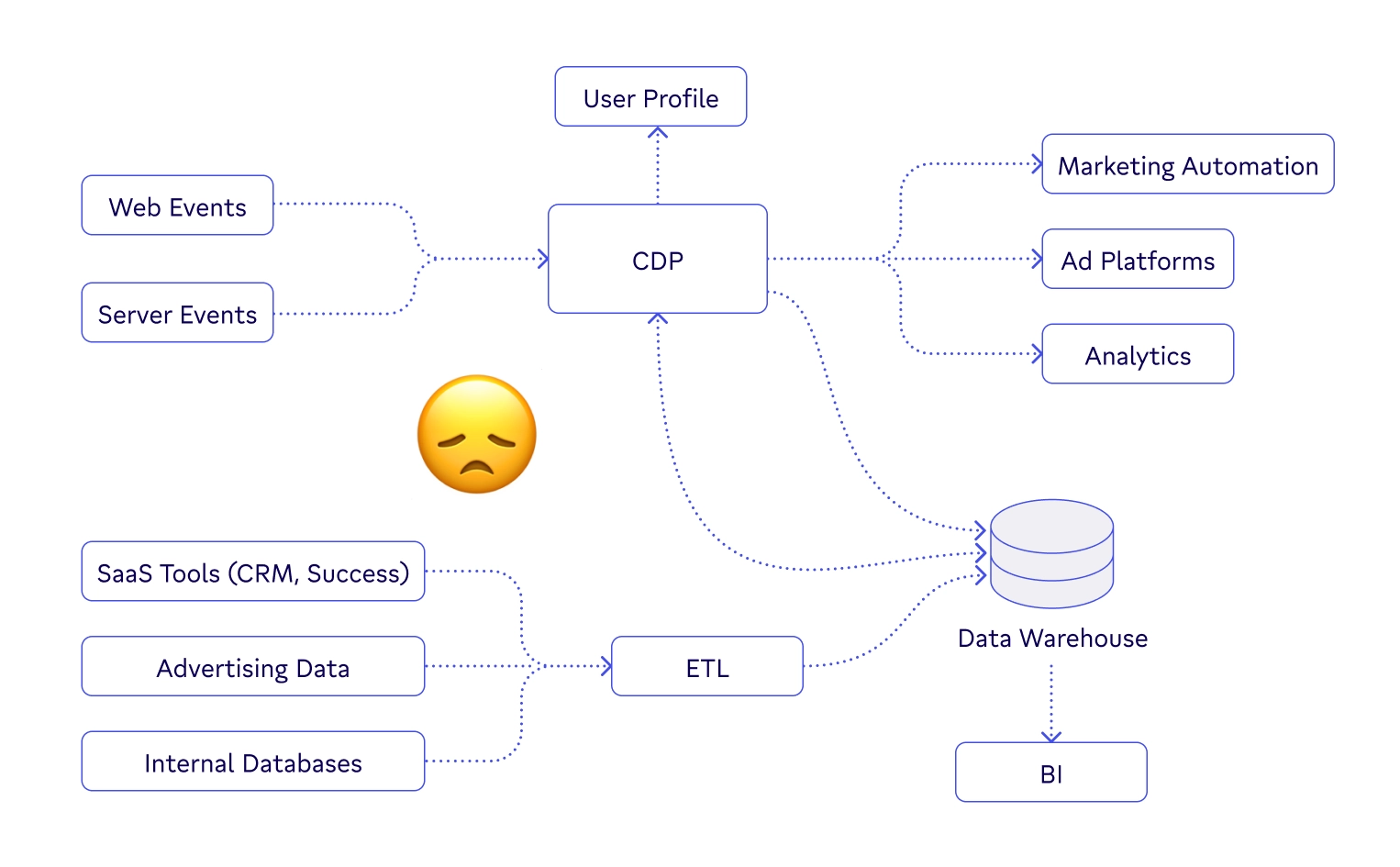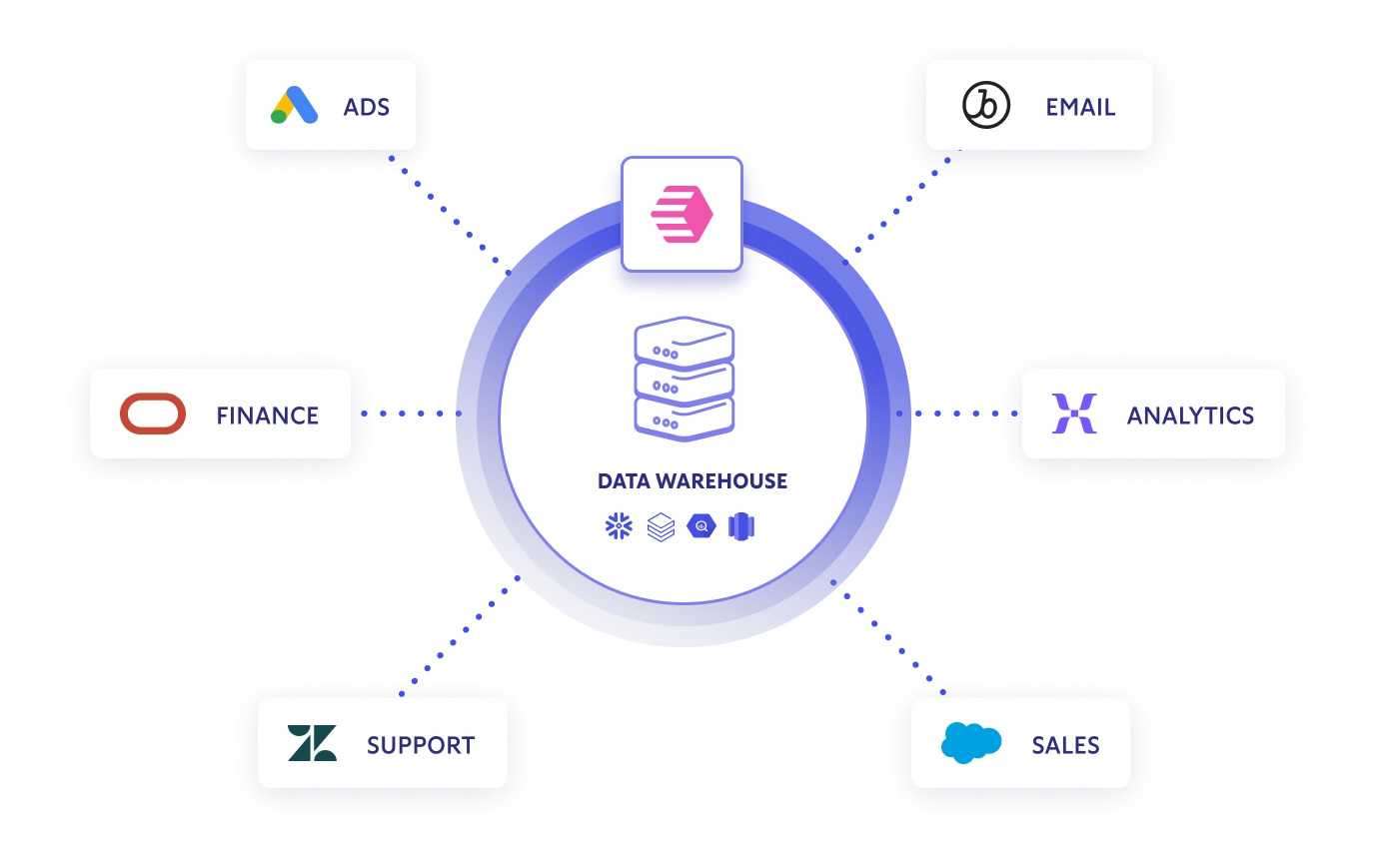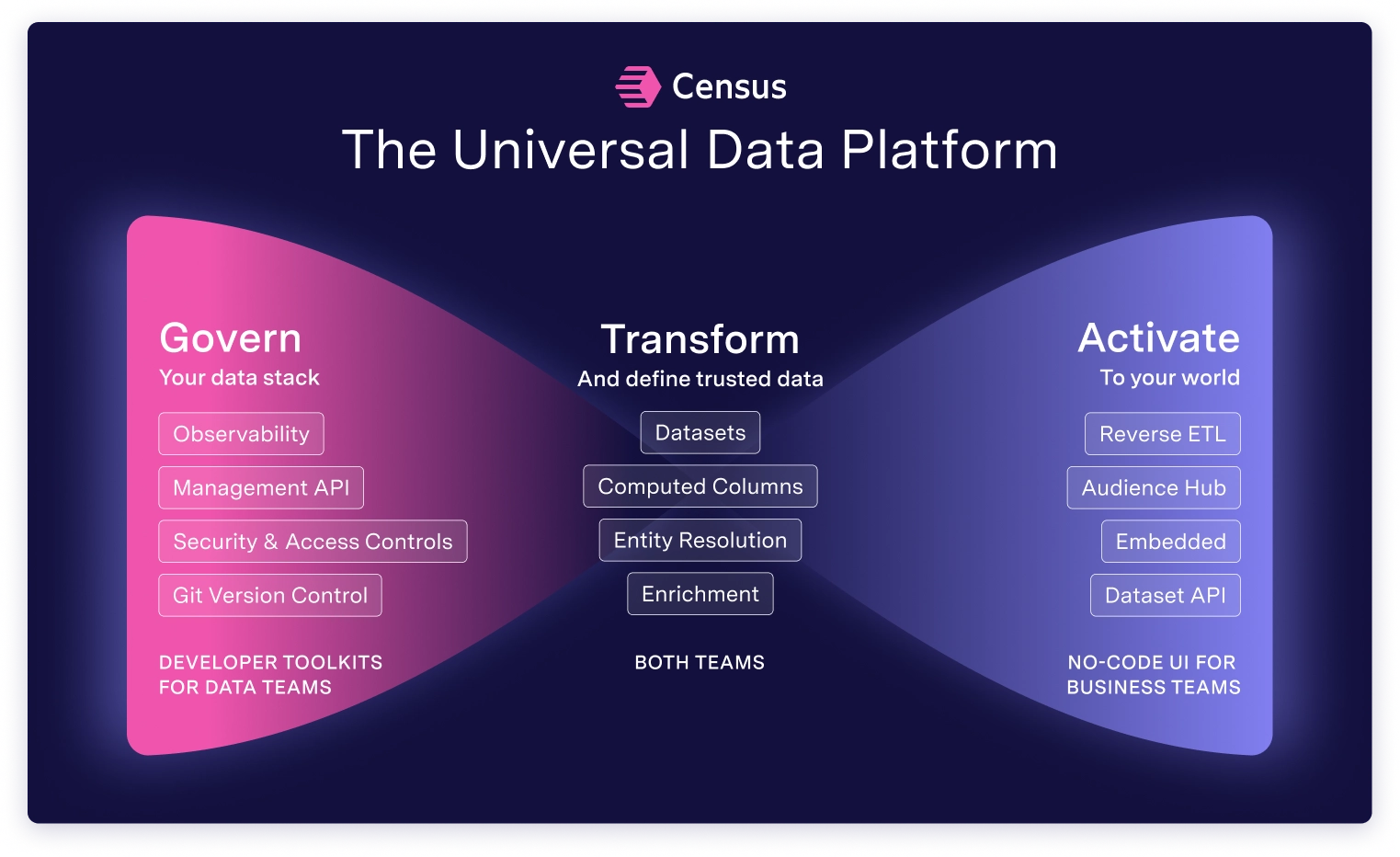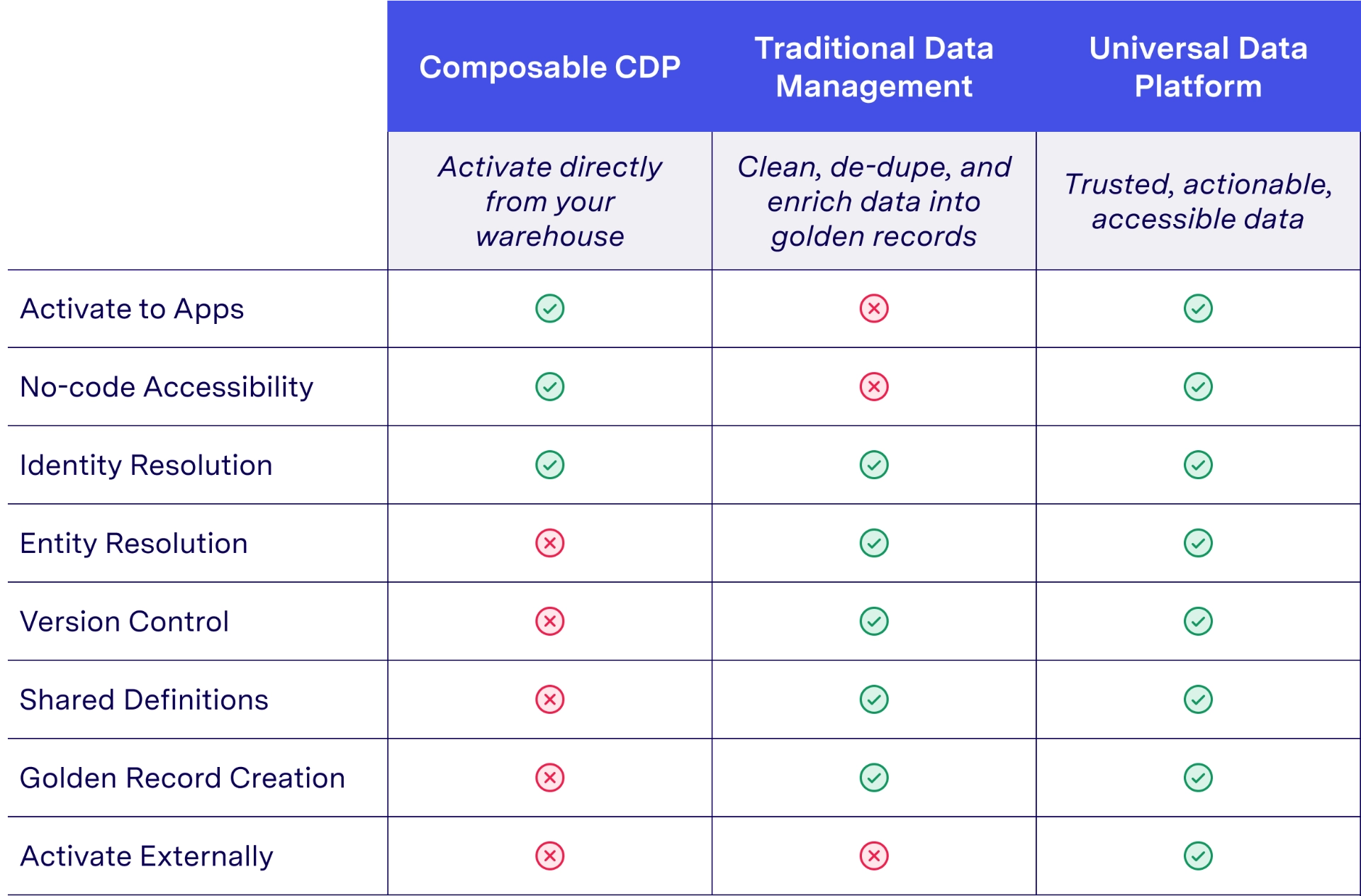While customer data platforms (CDPs) were once hailed as the ultimate tool for managing customer data, Census isn’t the only one asking whether a composable approach might make data more accessible across all teams and tools.
Kim Davis at MarTech.org recapped Ben Bloom’s session The New Math of Martech and Data Ecosystems from the Gartner Marketing Symposium and highlighted key market insights. Ben believes that cloud data warehouses are set to disrupt the traditional martech stack.
Traditional CDP challenges
Ben’s conference session underscored the growing challenges and limitations within the current CDP market.
- Traditional approaches, relying on centralized customer data platforms, have often led to data silos and inefficient processes.
- The customer data platform many hoped would be the solution may inadvertently exacerbate data fragmentation issues.
- The martech landscape faces declining utilization, from 58% in 2020 to 33% in 2023.

A new wave of martech
Ben explained the impact of cloud data warehouses (CDWs) on the marketing stack and emphasized, "The relationship between marketing applications and warehouse data means a new kind of martech stack is likely to emerge."
Census has long advocated for unbundling event collection and data activation to enable more efficient and effective data utilization across marketing technology ecosystems — an approach known as the Composable CDP.

Ben observed that “Genius” or “Gifted" brands (the two top echelons in Gartner’s Digital IQ index) are most likely to store data in a CDW.
Census allows businesses to move away from rigid, app-centric models to a more dynamic, flexible approach. By using the cloud data warehouse or data lake as a central source of truth, Census empowers modern marketing teams to build complete Customer 360 profiles, segment audiences without code, and deliver those audiences to any application reliably and securely.
Toward the Universal Data Platform
Recently, Census announced a product roadmap to go beyond Composable CDPs and bring data quality and data activation into one single platform. Called the Universal Data Platform (UDP), we aim to solve 2 major data challenges that are even more critical in the current age of AI, privacy, and consumer demand:
1. Getting high-quality data is too slow because of a lack of collaboration.
Only data teams have the tools to clean and model data, meaning that data teams are often bottlenecks for business requests. Data bottlenecks make enterprises move slower and accomplish less.
2. Companies need a turnkey way to share data reliably and securely across organizations.
Collaborating with partners and monetizing data is the future, which requires a solution that can activate data to external organizations. Current solutions aren't enough:
- The most-used tools are CSVs and S3 buckets, which are inefficient and unreliable.
- SaaS platforms and data providers spend extensive time and money building integrations in-house to ingest & export customer data.
- Data Clean Rooms ensure privacy for advertising PII, but syncing data in and out is slow and manual.
The solution to these challenges is the Universal Data Platform: a collaborative workspace where everyone can transform and govern trusted data, then activate it to any internal team, any partner organization, any app, or AI.

Universal Data Platform vs Composable CDP
Composable CDPs were a large step in the right direction, but they didn’t solve the fundamental problem that data should be clean, modeled, and standardized before it’s used.

Get started
Our solutions have been widely adopted by leading enterprises like HubSpot, Activision, Canva, Orangetheory Fitness, and Sonos, pushing the boundaries of what is achievable with a Composable CDP. As businesses continue to navigate the complex landscape of data management and marketing technology, Census remains a trusted partner that understands the importance of unifying and activating customer data.
Learn more about our groundbreaking solutions and how we’re helping businesses redefine their data strategies for the future: schedule a tour.
For more insights and detailed analysis, visit the original article on Martech.org.


















